We will never forget Cynthia Wesley, Carole Robertson and Addie Mae Collins — all 14 years old, and 11-year-old Denise McNair.
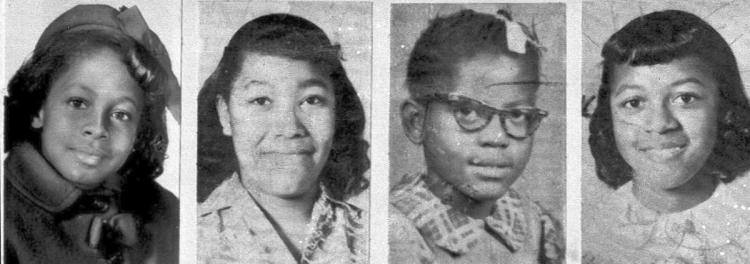
Carole Robertson, Carol Denise McNair, Addie Mae Collins, and Cynthia Wesley
The four girls were murdered in the 16th Street Baptist Church bombing in an act of terrorism by a Klan related group on Sept. 15, 1963 in Birmingham, Alabama. It came soon after the 1963 March on Washington for Jobs and Freedom (Aug. 28, 1963.)
Sarah Collins Rudolph was severely injured in the bombing and two boys were murdered that same day in Birmingham: 16-year-old Johnny Robinson and 13-year-old Virgil Ware.
Angela Davis, professor emerita at University of California, Santa Cruz, grew up in Birmingham and spoke at a 50th anniversary event in Oakland. Here are excerpts from her talk, followed by the Democracy Now! broadcast and link to the full transcript.
Remembering and paying tribute to this tragic event, let us not pretend that we are simultaneously celebrating the end of racist violence and the triumph of democracy. Let us also not labor under the illusion that this church bombing was an anomaly. We know that Robert Chambliss, who was eventually convicted of carrying out the bombing, along with three others — we know that he had been responsible for bombing Black homes and churches over so many years.
As a matter of fact, during the eight years prior to the church bombing, there had been 21 bombings in Birmingham. This man’s nickname was “Dynamite Bob.” He was known in white communities, you know, talking about terrorism. And I want to emphasize the importance of understanding how much terrorism, racist terrorism, has shaped the history of this country. And there are lessons we need to learn from that.
. . . A broader way of thinking about justice in the case of the Birmingham bombing would require, first of all, a fuller understanding of the event and its historical context, and would require us to ask questions about the way our lives today bear the historical imprint of that era.
. . . Just as sediments of slavery are still with us, most dramatically represented by the country’s incarceration practices and by the racism of the death penalty, the vestiges of an era where racist violence was the norm and was condoned by officials, from local governments to Washington, are still haunting us. [Read in full and watch below.]
Related Resources
Books
- Birmingham, 1963, archival photographs with free verse for six to nine year olds, by Carole Boston Weatherford
- Watsons Go To Birmingham 1963, a chapter book for middle school students by Christopher Paul Curtis
Films
- Freedom March, a 10-minute film from the Harvey Richards Media Archive about the church and union sponsored march down Market Street in San Francisco in response to the 1963 bombing
- 4 Little Girls, a film by Spike Lee
Songs
- “I can’t think of a Sunday,” by Baltimore history teacher Joe DeFilippos and the RJ Phillips band
- “Birmingham Sunday,” written by Richard Fariña and sung by Joan Baez (1964).
- “Mississippi Goddam” by Nina Simone, who said, “And when the kids got killed at that church. . . that did it. . . I just sat down and wrote this song. And it’s a very moving, violent song. Because that’s how I feel about the whole thing.”
Lessons, Websites, and More
- Birmingham Public Library’s online digital collection of photos and news clippings
- Birmingham Civil Rights Institute
- Kids in Birmingham 1963, a website with oral histories from people who grew up in Birmingham during that era.
- A Time to Speak: A Speech by Charles Morgan, a lesson for middle and high school from Learning for Justice
- And more below

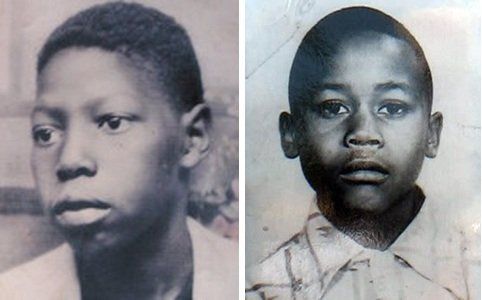



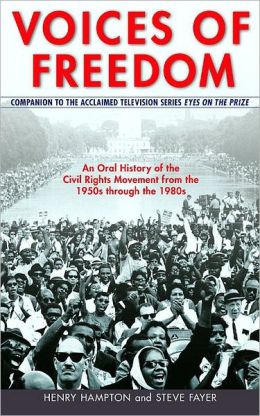
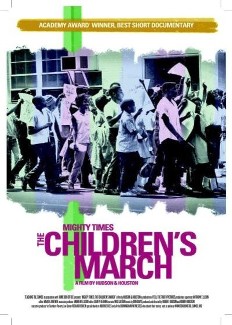
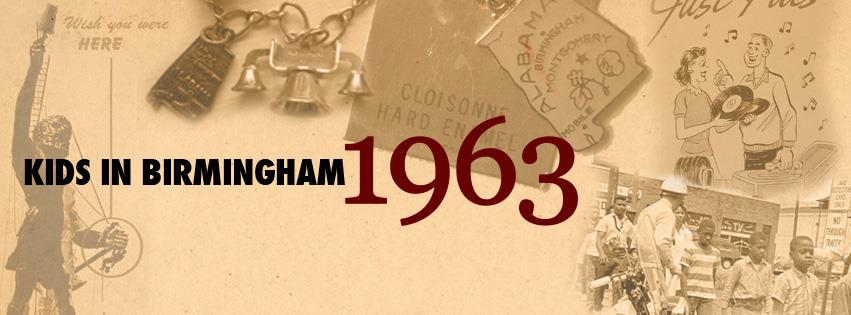
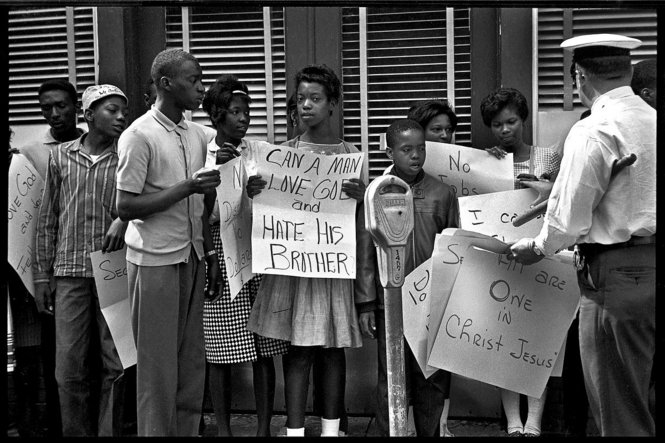
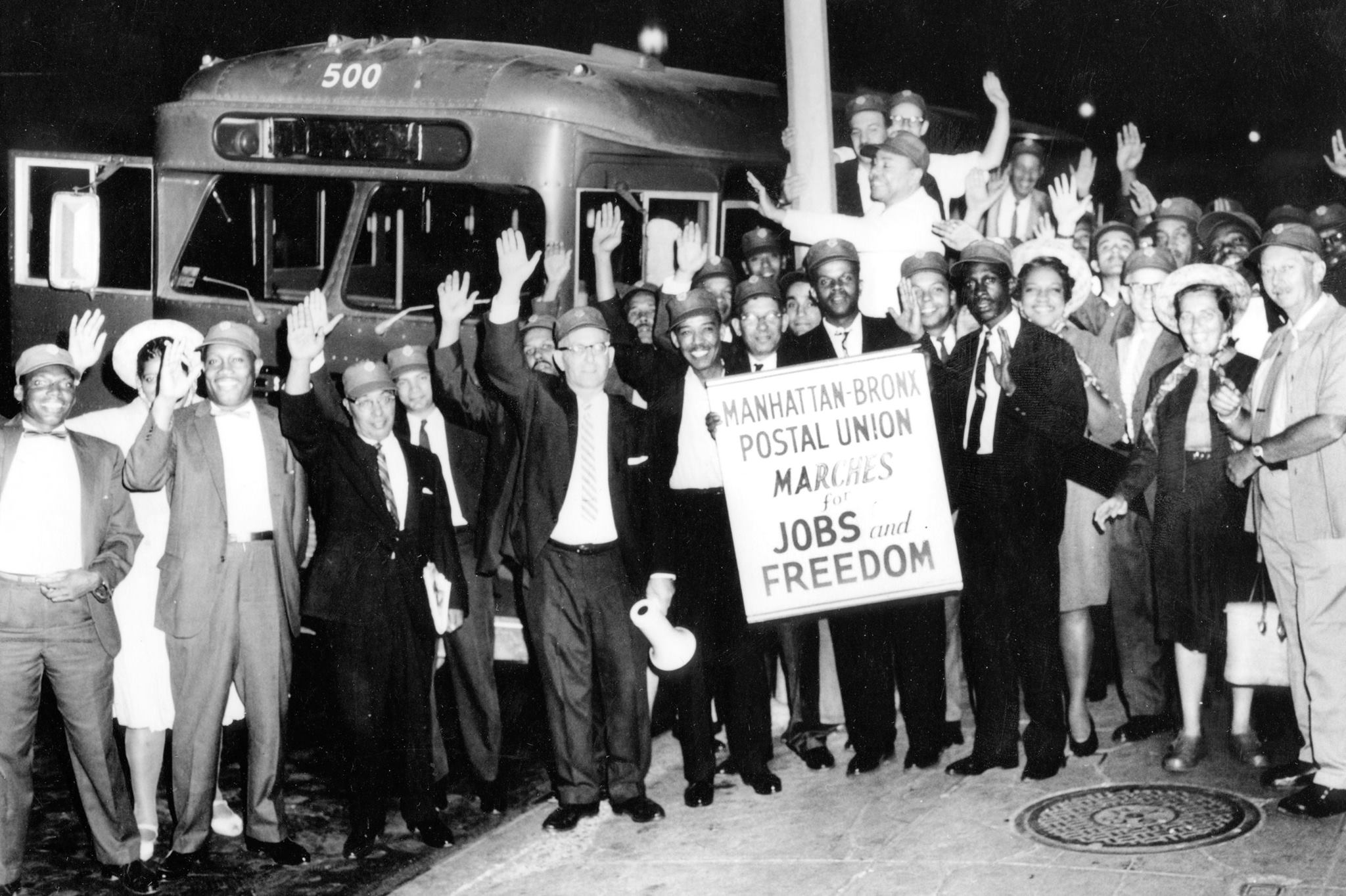
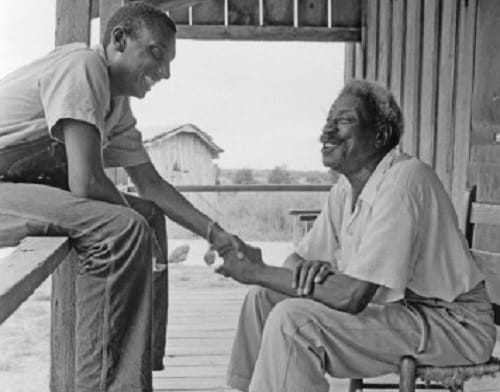





Twitter
Google plus
LinkedIn